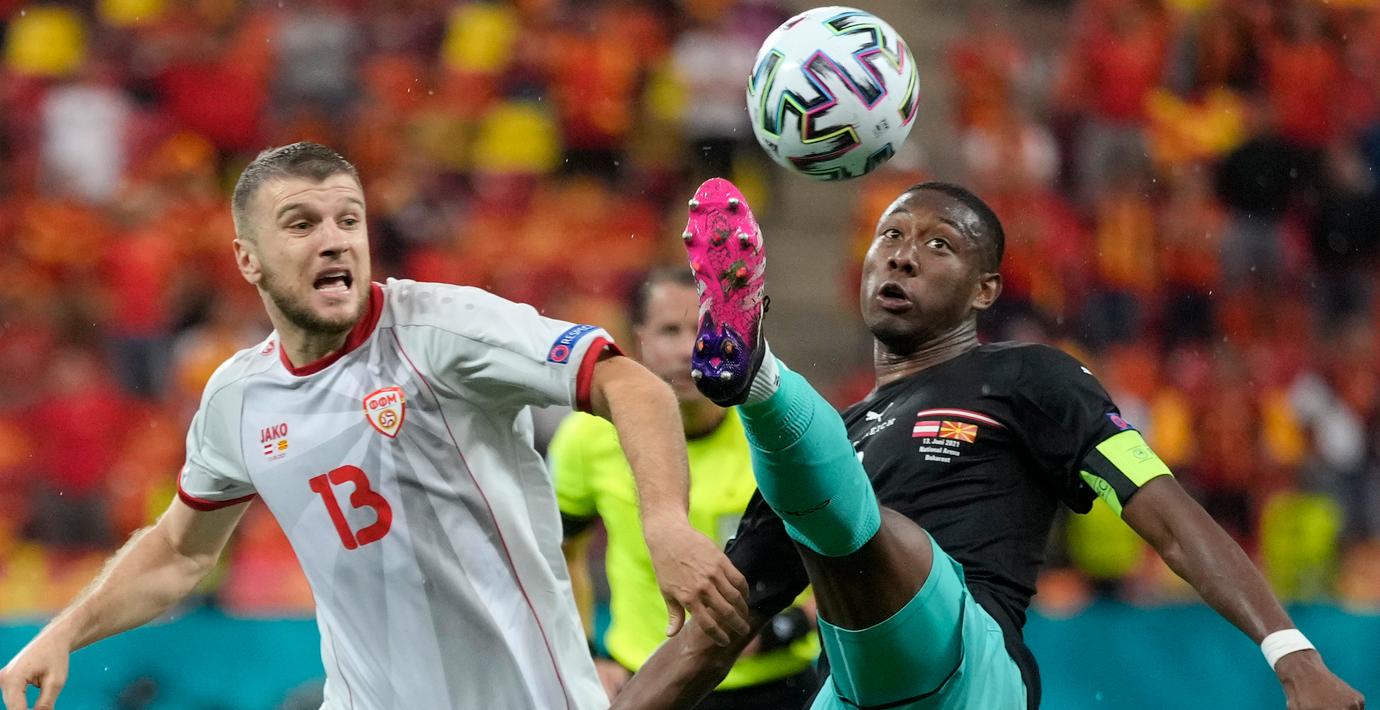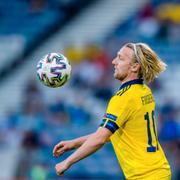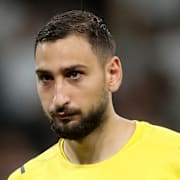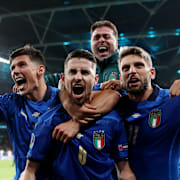
Greklands krav: Ändra era tröjor, Nordmakedonien
Grekland har klagat till det europeiska fotbollsförbundet Uefa och krävt att Nordmakedonien ändrar sina lagtröjor under fotbolls-EM, skriver AFP.
Kontroversen gäller det faktum att Nordmakedoniens tröjor har bokstäverna ”FFM” tryckt på bröstet, som står för ”Football Federation of Macedonia”. Grekland menar att det är en hänvisning till när landet hette Makedonien innan överenskommelsen om namnbyte 2018.
Dispyten går långt tillbaka i tiden. Grekland krävde ett namnbyte då de menade att namnet inkräktade på deras egna historiska områden Västra, Mellersta och Östra Makedonien.
bakgrund
Makedoniens namnkontrovers
Wikipedia (en)
The use of the country name "Macedonia" was disputed between Greece and Macedonia (now North Macedonia) between 1991 and 2019. The dispute was a source of instability in the Western Balkans for 25 years. It was resolved through negotiations between Athens and Skopje, mediated by the United Nations, resulting in the Prespa agreement, which was signed on June 17, 2018. Pertinent to its background is an early 20th-century multifaceted dispute and armed conflict that formed part of the background to the Balkan Wars. The specific naming dispute, although an existing issue in Yugoslav–Greek relations since World War II, was reignited after the breakup of Yugoslavia and the newly gained independence of the former Socialist Republic of Macedonia in 1991. Since then, it was an ongoing issue in bilateral and international relations until it was settled with the Prespa agreement in June 2018, the subsequent ratification by the Macedonian and Greek parliaments in late 2018 and early 2019, and the official renaming of Macedonia to North Macedonia in February 2019.
The dispute arose from the ambiguity in nomenclature between the Republic of Macedonia, the adjacent Greek region of Macedonia and the ancient Greek kingdom of Macedon. Citing historical and irredentist concerns, Greece opposed the use of the name "Macedonia" without a geographical qualifier such as "Northern Macedonia" for use "by all ... and for all purposes". As a significant contingent of ethnic Greeks identify themselves as Macedonians and view themselves as unrelated to ethnic Macedonians, Greece further objected to the use of the term "Macedonian" for the neighboring country's largest ethnic group and language. North Macedonia was accused by Greece of appropriating symbols and figures that are historically considered part of Greek culture such as the Vergina Sun and Alexander the Great, and of promoting the irredentist concept of a United Macedonia, which involves territorial claims on Greece, Bulgaria, Albania, and Serbia.The dispute escalated to the highest level of international mediation, involving numerous attempts to achieve a resolution. In 1995, the two countries formalised bilateral relations and committed to start negotiations on the naming issue, under the auspices of the United Nations. Until a solution was found, the provisional reference "the former Yugoslav Republic of Macedonia" (FYROM) was used by multiple international organisations and states. UN members, and the UN as a whole, agreed to accept any name resulting from successful negotiations between the two countries. The parties were represented by Ambassadors Vasko Naumovski and Adamantios Vassilakis with the mediation of Matthew Nimetz, who had worked on the issue since 1994.On 12 June 2018, an agreement was reached. A referendum was held in Macedonia on 30 September 2018, with voters overwhelmingly affirming support for EU and NATO membership by accepting the Prespa agreement. However, voter turnout was well below the 50 percent threshold needed to validate the result. After the agreement was ratified by both sides, it entered into force from 12 February 2019. On March 27, 2020, North Macedonia became the 30th NATO ally.
Läs mer
Omni är politiskt obundna och oberoende. Vi strävar efter att ge fler perspektiv på nyheterna. Har du frågor eller synpunkter kring vår rapportering? Kontakta redaktionen



